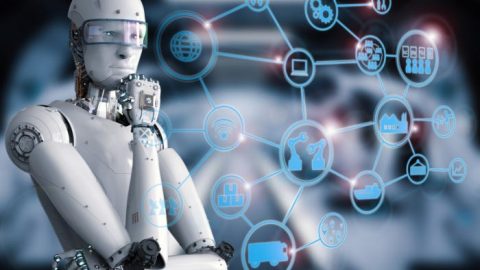
Illustration (Source: Internet)
In no other sector is artificial intelligence having more of an impact than on manufacturing, and the revolution is just beginning.
Human-robot collaboration
The International Federation of Robotics predicts that by the end of 2018 there will be more than 1.3 million industrial robots at work in factories all over the world. In theory, as more and more jobs are taken over by robots, workers will be trained for more advanced positions in design, maintenance, and programming.
In this interim phase, human-robot collaboration will have to be efficient and safe as more industrial robots enter the production floor alongside human workers.
Advances in AI will be central to this development, enabling robots to handle more cognitive tasks and make autonomous decisions based on real-time environmental data, further optimizing processes.
Making better products with generative design
Artificial intelligence is also changing the way we design products. One method is to enter a detailed brief defined by designers and engineers as input into an AI algorithm (in this case referred to as “generative design software”).
The brief can include data describing restrictions and various parameters such as material types, available production methods, budget limitations and time constraints. The algorithm explores every possible configuration, before homing in on a set of the best solutions.
The proposed solutions can then be tested using machine learning, offering additional insight as to which designs work best. The process can be repeated until an optimal design solution is reached.
One of the major advantages of this approach is that an AI algorithm is completely objective – it doesn’t default to what a human designer would regard as a “logical” starting point. No assumptions are taken at face value and everything is tested according to actual performance against a wide range of manufacturing scenarios and conditions.
Adapting to an ever-changing market
Artificial intelligence is a core element of the Industry 4.0 revolution and is not limited to use cases from the production floor. AI algorithms can also be used to optimize manufacturing supply chains, helping companies anticipate market changes. This gives management a huge advantage, moving from a reactionary/response mindset, to a strategic one.
AI algorithms formulate estimations of market demands by looking for patterns linking location, socioeconomic and macroeconomic factors, weather patterns, political status, consumer behavior and more.
This information is invaluable to manufacturers as it allows them to optimize staffing, inventory control, energy consumption and the supply of raw materials.
Industrial AI will continue to transform the manufacturing sector
The manufacturing sector is a perfect fit for the application of artificial intelligence. Even though the Industry 4.0 revolution is still in its early stages, we’re already witnessing significant benefits from AI. From the design process and production floor, to the supply chain and administration, AI is destined to change the way we manufacture products and process materials forever.
Productivity and Quality Office